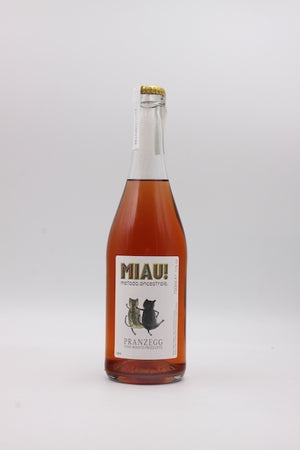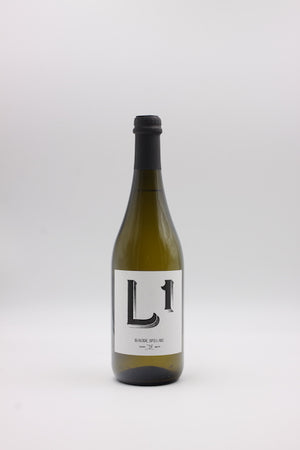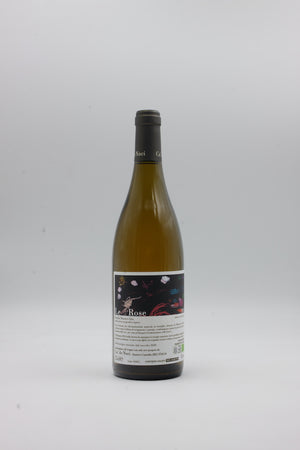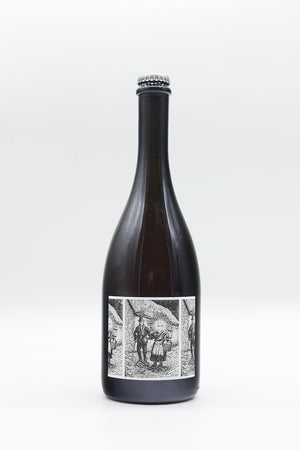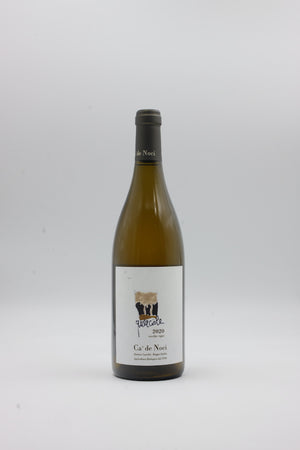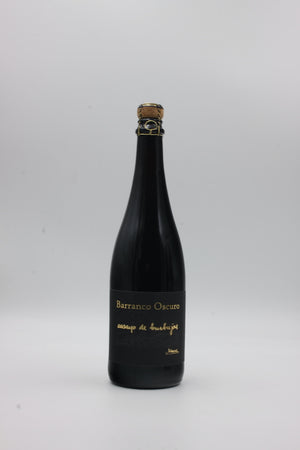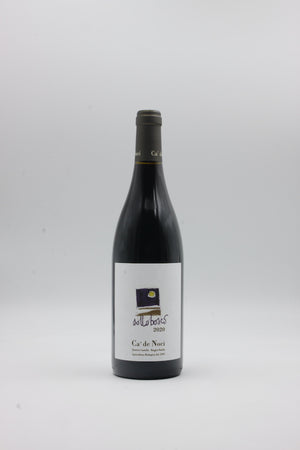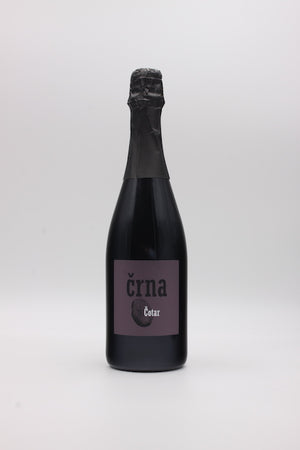- Home
- Ca‘ de Noci, Tre Dame 2022


Ca‘ de Noci, Tre Dame 2022
- €23,90
Tre Dame: The Singular Charm of Sgavetta
On the label of Ca’ de Noci’s Tre Dame, you’ll find this possibly tongue-in-cheek statement:
“Vino Frizzante da rifermentazione in bottiglia ottenuto dalle vigne di Sgavetta e rare varietà autoctone…”
Translated: “A Frizzante produced through bottle refermentation from Sgavetta and rare, native varieties…”
But Sgavetta?
Does anyone actually know Sgavetta? Other than us? And we only know it because we adore, import, and sell Ca’ de Noci’s wines.
In fact, Ca’ de Noci’s Tre Dame is the only wine in the world where Sgavetta takes center stage. Despite historical praise for its quality (Toni, 1927: “one of Emilia’s best varieties”), it has always been rare and underappreciated (Gheddi, 1926: “seldom grown but very good”).
Alberto and Giovanni Masini craft a Rosé Frizzante from Sgavetta, pressing the grapes after one day of skin contact. The must ferments spontaneously in stainless steel before undergoing secondary fermentation (rifermentazione) in the bottle. Tre Dame is unfiltered and completely unsulfured.
We’ll share more about the other rare varieties in Tre Dame soon.
Style
Fresh, lively, and sparkling—a wine that invigorates. Aromas of wild berries and mineral notes take center stage. Fine-grained tannins and vibrant acidity create an engaging structure. Light as a feather yet brimming with depth, it’s both delightful and full of character.
Datasheet
Grape Variety: Sgavetta and a few rare, native varieties.
Vineyard: Planted in 2003, west-facing, located at 150–230 meters. Soils: Limestone-sand mix with gypsum veins.
Harvest: By hand.
Fermentation: Spontaneous | wild yeasts, in stainless steel; secondary fermentation in the bottle.
Filtration: None.
SO₂: Unsulfured.
Alcohol Content: 11% vol.
Closure: Natural cork.
Serving Temperature: 8–10°C.
Perfect Drinking Window: Ready to drink now – 2028.
Content and Price per Liter: 0.75 l (€31.87/l).
All winemakers listed at Vinonudo work with compost, organic fertilizers, and natural preparations in their vineyards, abstaining from the use of herbicides, pesticides, and synthetic fertilizers.
Similar Products
Newsletter
Who knows more, tastes more. Once a week there is news about our wines, winegrowers and events.
© 2025 vinonudo | Shopify Theme by Mile High Themes | Powered by Shopify
